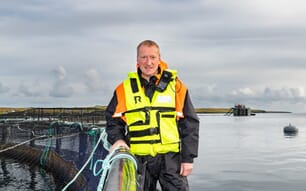Research by the Sustainable Inshore Fisheries Trust (SIFT) shows that Scotland’s Inshore Fishery Groups (IFGs), which have responsibility for managing inshore waters, are lagging far behind their equivalents south of the border, both in terms of resources and overall remit.
The coastline of mainland Scotland, together with its main islands, stretches to more than 11,500 miles, almost double that of mainland England and its main islands. England’s network of ten Inshore Fisheries and Conservation Authorities (IFCAs) have a combined annual budget of over £8.6M, deploying over 40 vessels and with access to three Royal Navy offshore patrol vessels. In comparison direct expenditure by Scotland’s 12 Inshore Fisheries Groups is just some £2m per year and they have access to two planes, the occasional rigid-hulled inflatable boat in summer and three mini frigates, two of which are used mainly for offshore enforcement.
Charles Millar, Director of SIFT, said: “There is little doubt that the management and compliance monitoring of Scotland’s inshore waters is being starved of resources and falls far behind the situation in England. In essence Scotland is trying to manage inshore fisheries that cover almost twice the length of England’s coast with less than 25 per cent of the budget. The Scottish Government’s current review of the proposals of IFGs represents a great opportunity for Scotland to redress the balance and show its commitment to the sustainable management of our valuable coastal seas”.
SIFT is also concerned that the recent consultation on the IFGs was lacking in proposals that will have a positive impact on the marine environment and encourage the regeneration of inshore habitats and commercial fish stocks. Again this contrasts with the situation in England where the remit of IFCAs is to “lead, champion and manage a sustainable marine environment and inshore fisheries, by successfully securing the right balance between social, environmental and economic benefits to ensure healthy seas, sustainable fisheries and a viable industry”.
SIFT Chairman Robert Younger concluded: “The IFG proposals focus on the short term commercial interests of the commercial shell fish industry. This is because the IFG’s are structured to favour the interests of the commercial trawling and dredging sector and therefore were never likely to produce management proposals that genuinely served the public interest.
If coastal communities such as those on the Clyde are to have confidence in IFGs, then they and their constitutions must be adapted so that they manage inshore waters for the benefit of all stakeholders, not just the privileged few. We can learn much from the English IFCAs which are managed as a public resource by a cross section of the public. Scotland’s IFGs typically exclude everyone except commercial fishermen and they are dominated by the mobile fleet. This is no way to manage a public asset”.
The period for written responses to Scottish Government’s consultation document ‘Management Proposals of Inshore Fisheries Groups’, which sought the views of interested parties and the public on the potential environmental impact of the initiatives proposed in the Management Plans, concluded on 10 October.



